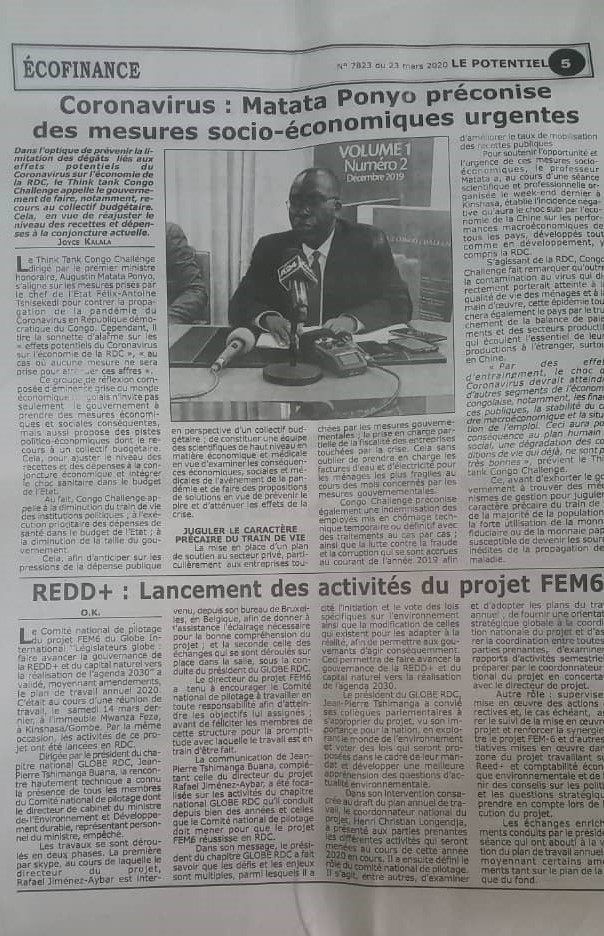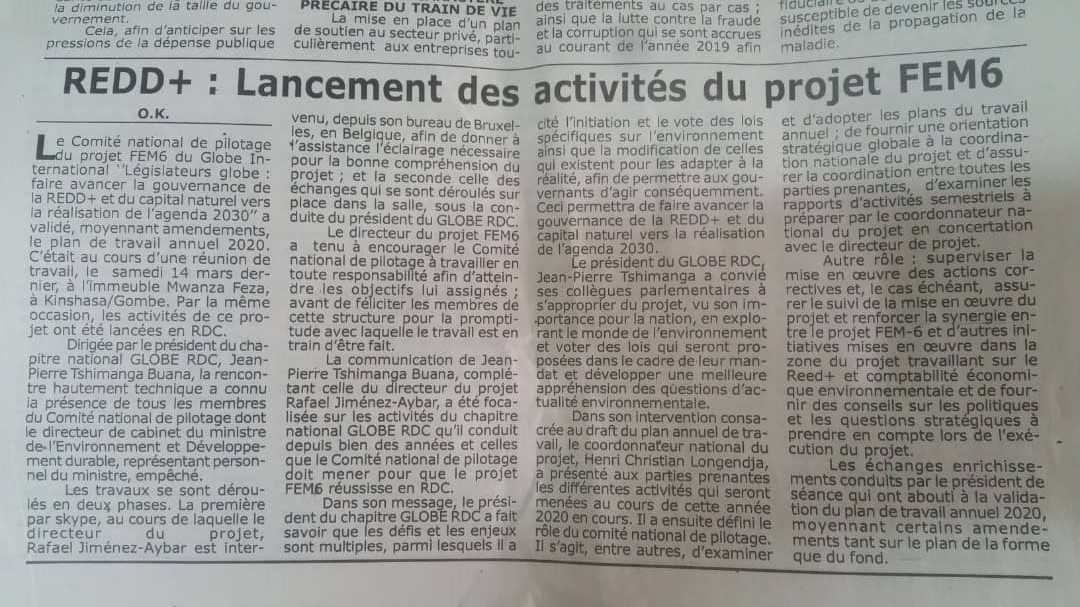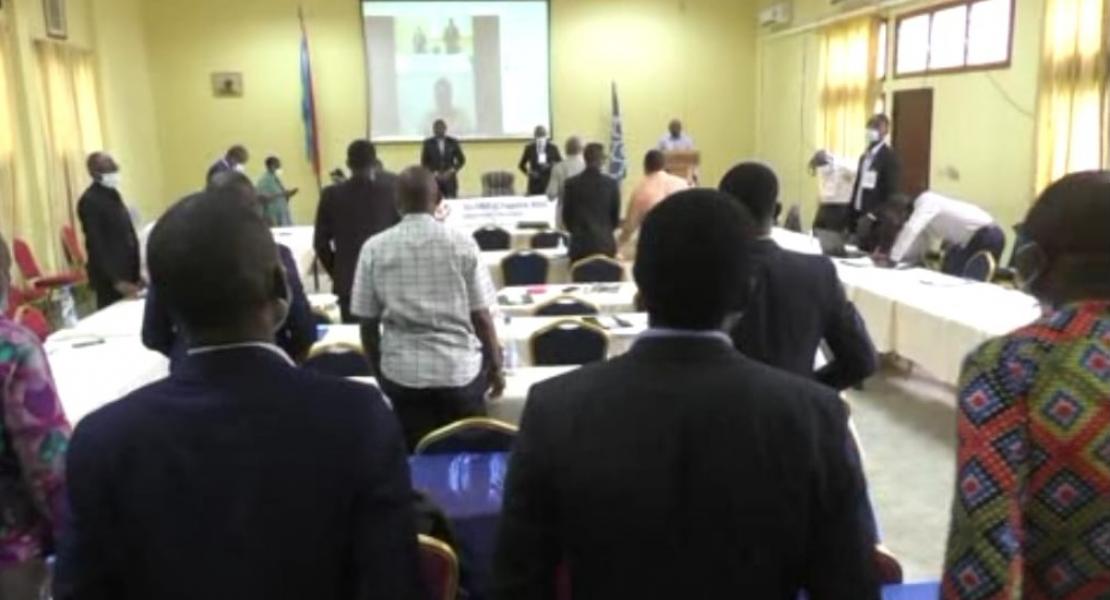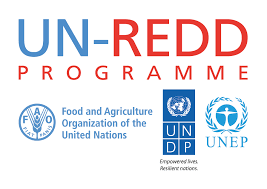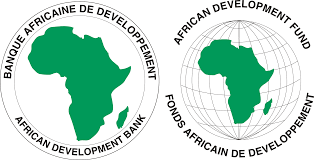GLOBE's diagnostic report on the implementation of environmental economic accounting as a tool for decision-making for sustainable development in the DRC was presented at a high-level event opened by His Excellency the Minister of Environment and Sustainable Development Mtr. Claude NYAMUGABO.
The presentation of the report was preceded by a training session on the principles of environmental economic accounting and its policy applications as tested in other countries in the DRC to the benefit of the attending national Deputies and Senators members of the commissions on the Environment of the two chambers of the Congolese parliament, civil servants, and civil society organisations active on the environment.
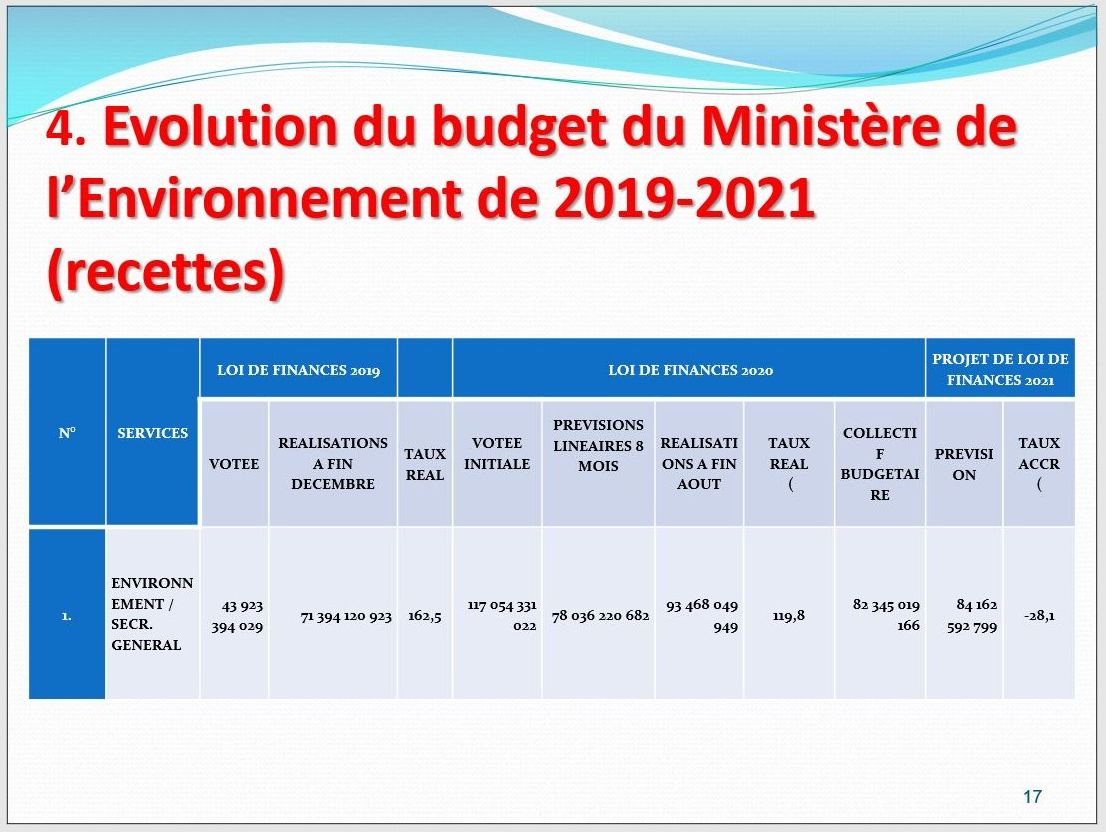
The objective of this activity was to stimulate the involvement of parliamentarians to provide political momentum to the implementation of environmental economic accounting (EEA) in the DRC, including by passing policies and laws to drive this process and generate a demand for the data, as well as to validate the results of the report, which proposes a practical roadmap for implementation of EEA.
At the opening of the session Minister NYAMUGABO called for an effective involvement of legislators in the integration of the 'natural capital approach' to decision-making, and then for the validation of the results of the diagnostic study, while voicing his conviction that at the end of this workshop the capacities of parliamentarians and stakeholders to play their role would be strengthened.
The President of GLOBE DRC, Hon. Jean-Pierre TSHIMANGA BUANA, welcomed the presence of all parties to this workshop, while inviting them to attend regularly future GLOBE activities at the Assemblée nationale. 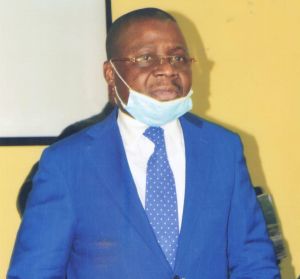 Mr. Grégoire ASSANI, Chief of Staff of the Minister of Environment and Sustainable Development, in his capacity as the Chairman of the National Steering Committee of this GEF6 project in the DRC, stressed that the objective of the project is to enable the members of the Environment Committees of the two chambers of parliament to advance environmental governance through the REDD+ process and EEA towards the implementation of the 2030 agenda. In order to achieve this, they are called upon to take legislative actions, including initiating laws and monitoring the application of existing laws.
Mr. Grégoire ASSANI, Chief of Staff of the Minister of Environment and Sustainable Development, in his capacity as the Chairman of the National Steering Committee of this GEF6 project in the DRC, stressed that the objective of the project is to enable the members of the Environment Committees of the two chambers of parliament to advance environmental governance through the REDD+ process and EEA towards the implementation of the 2030 agenda. In order to achieve this, they are called upon to take legislative actions, including initiating laws and monitoring the application of existing laws.
The presentation of the results of the study was delivered by videoconference by Prof. Mylor Ngoy SHUTCHA, from the Dept. of Ecology, Ecological Restoration and Landscape of the Faculty of Agronomic Sciences of the University of Lumumbashi, as the research team leader in charge of producing the report on behalf of GLOBE International. He explained that although the DRC has owned the issues of sustainable exploitation of natural resources and nature conservation through the ratification of international conventions such as the Convention on Biological Diversity, the United Nations Framework Convention on Climate Change or the Kyoto Protocol, environmental economic accounting is not yet integrated into its National Accounts. These are still built on the format of the United Nations System of National Accounts of 1993 (1993 SNA), while a new SNA has been in force since 2008 (2008 SNA) which takes into account environmental assets and flows (physical and monetary), which the 1993 SNA did not. The interviews also indicated that awareness of the central framework of the System of Environmental Economic Accounting of 2012 (SEEA 2012) is minimal or non-existant within the various departments of the Ministry of the Environment and Sustainable Development (MEDD and other specialized departments.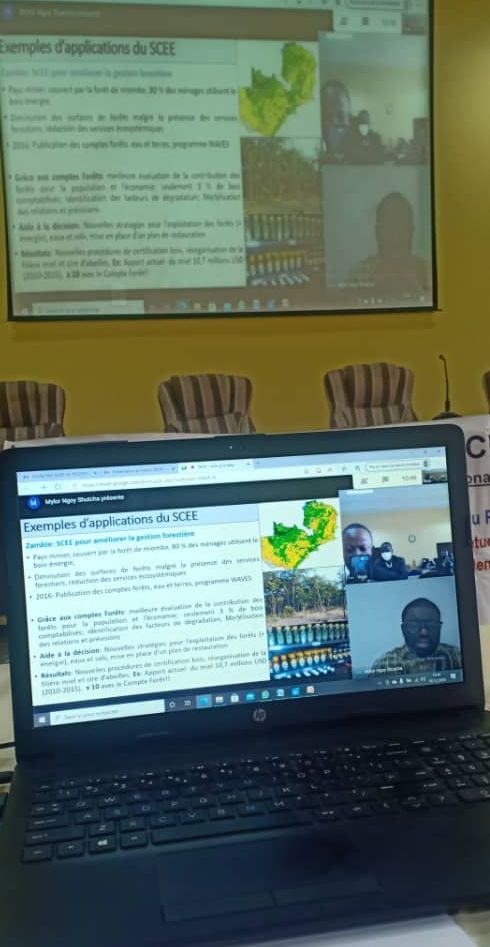
The review of experiences from other countries reveals the main challenges to the implementation of the SEEA 2012, particularly for Least Developing Countries (LDCs), which include:
- Political and institutional challenges: need for ownership of the SEEA 2012 and for its institutionalization, including through a legal framework, as well as the designation of a clear institutional leadership to foster coordination and coherence of the different initiatives taken by the institutions in relation to natural capital management.
- Challenges related to human, technical and financial capacities: lack of sufficient human, infrastructure (and equipment) and financial resources to understand the implementation of the SEEA 2012.
- Challenges of data availability: inadequate quality and quantity of data available on the stocks and flows of the different components of natural capital.
- Challenges related to international cooperation: weak capacity of developing countries to mobilise assistance from international partners to overcome domestic capacity weaknesses but also to ensure better coordination of said assistance for a better impact.
The DRC is no exception and faces all the challenges identified for least developed countries. As a result, concrete proposals have been formulated to address the challenges and implement the SEEA 2012, in particular:
- The institutionalization of the SEEA 2012 through sensitization activities of various stakeholders including policy makers and legislators,
- The clear designation of a lead institution and the establishment of an implementation structure for the EWC, particularly a steering committee and a working group or executive committee;
- Seeking international assistance, particularly through the secretariat of the Gaborone Declaration on Sustainable Development in Africa (GDSA),
- The strengthening of human, technical and financial capacities with the assistance of the technical and financial partner (TFP) that will be identified, and
- the implementation of the SEEA 2012 through an assistance of at least ten years. However, good upstream planning of activities and identification of priority natural capital components will be necessary to ensure success.
With regard to the creation of environmental accounts proper, Prof. SHUTCHA recommended to build on the data already available through improved integration of environmental assets and their flows. The report shows good prospects for the implementation of the SEEA 2012 in the DRC and stresses its important for a country so rich in natural capital and so dependent on it for its future prosperity. However, more sustained exchanges with experts from countries that have experienced the implementation of the SEEA 2012, as well as with the Gaborone Declaration for Sustainability in Africa Secretariat (GDSA) and technical and financial partnes will allow the roadmap to be refined.

After the moderator opened the debate, several participants took the floor and asked Professor SHUTCHA to expand on:
- agriculture as a driver for development but also for the destruction of forests;
- the difference between the SEEA 2012 and the SNA of 2008,
- the possibility of integrating other institutions in further efforts to advance this theme in the DRC,
- the inclusion in the report of the SNA 2008,
- the possibility of engaging with other countries with experience in this area (e.g. Australia, Guatemala or Zambia) to advance the system of environmental economic accounting in the DRC.
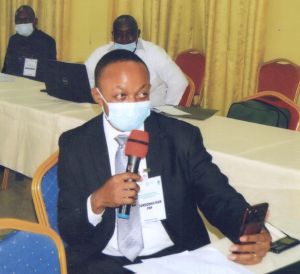 The National Project Coordinator, Mr Henri-Christin LOGENDJA ended his remarks by thanking all stakeholders for their attendance, considering them as the focal points for their respective organisations, on behalf of the Hon. President of GLOBE DRC and the Project Director.
The National Project Coordinator, Mr Henri-Christin LOGENDJA ended his remarks by thanking all stakeholders for their attendance, considering them as the focal points for their respective organisations, on behalf of the Hon. President of GLOBE DRC and the Project Director.
At the vote that followed the exchange with the audience the study was unanimously validated by the participants.
The closing remarks of the workshop were delivered by Hon. Célestin ENGELEMBA, Member of the Environment Committee of the National Assembly, who thanked the organisers for their efforts and stated that he had benefited from this workshop.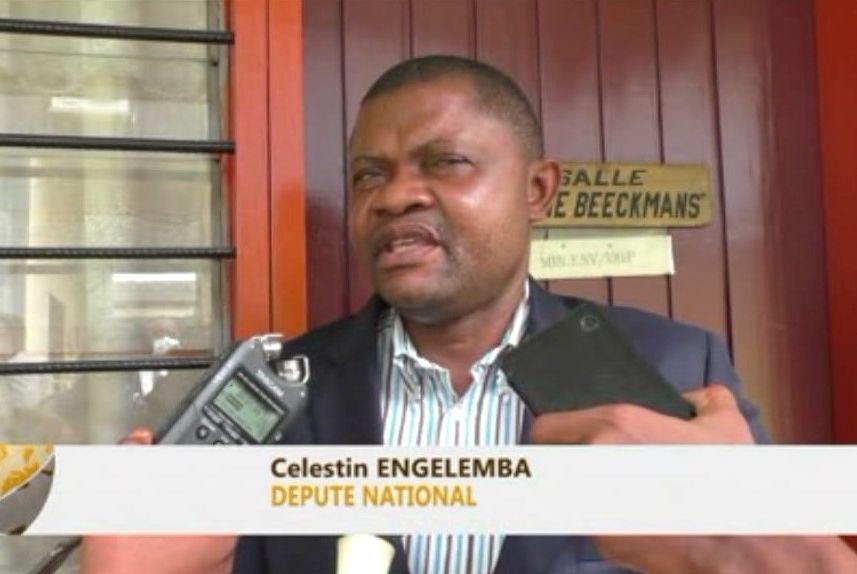
After the deliberations, the following resolutions were agreed by the participants:
-
Plea for the signature of the letter of application for membership to the Gaborone Declaration;
-
The participants saluted the assumption of responsibility for the project by state institutions, mainly the Ministry of Environment and Development, in their commitment to invest 1 million dollars as in-kind co-financing to advance the actions needed to implement the legislative roadmap for the implementation and institutionalisation of the SEEA 2012 in the DRC;
-
The roadmap proposed in the report must be taken into account in the elaboration of the GLOBE DRC action plan for 2021;
-
The GLOBE DRC Chapter should serve as a bridge between the international community and the Congolese population, by raising awareness of threats to forest resources;
-
The Congolese government is called to improve the environmental rule of law but also to carry out serious reforms in the area of the environment in order to capitalise on environmental assets in a sustainable manner;
-
Following the example of the two other African countries (Nigeria, Senegal) supported by the GLOBE project, already making progress with the implementation of environmental economic accounting, GLOBE DRC must take action in this regard;
-
The possibility of working in synergy with other countries of the sub-region already advanced on the implementation of the SEEA 2012 beyond the scope of the project must be taken into consideration.
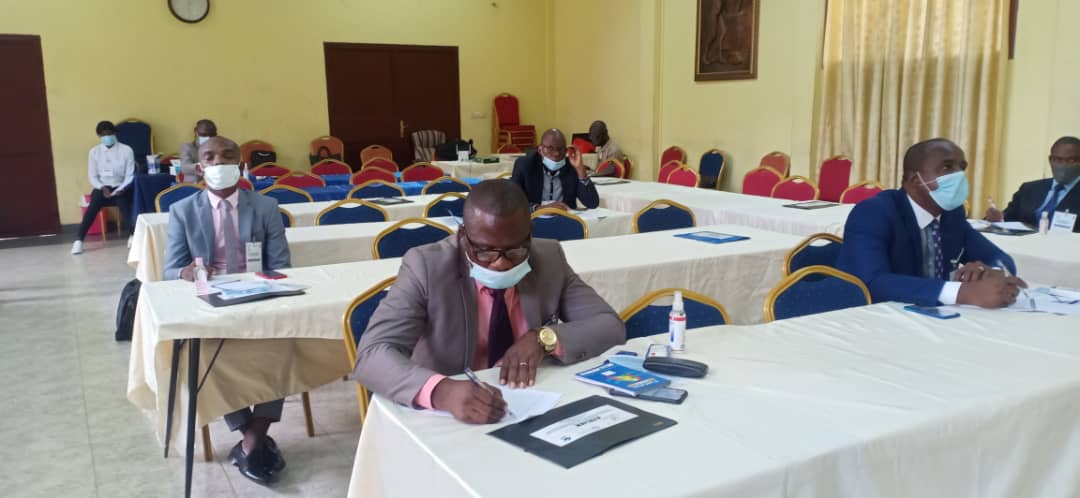
THE EVENT IN THE NEWS
Digital Media
Courrier de Kinshasa: http://www.adiac-congo.com/content/processus-reed-lancement-officiel-du-projet-fem-6-114228
Courrier de Kinshasa, 11/02/2020: report on the meeting granted by the Minister of the Environment and Sustainable Development to the National Coordination of the project: http://www.adiac-congo.com/content/processus-redd-presentation-du-chapitre-globe-rdc-et-du-projet-fem6-au-ministre-de
Print media
Journal Le Nouvel Observateur, Friday 20/03/2020
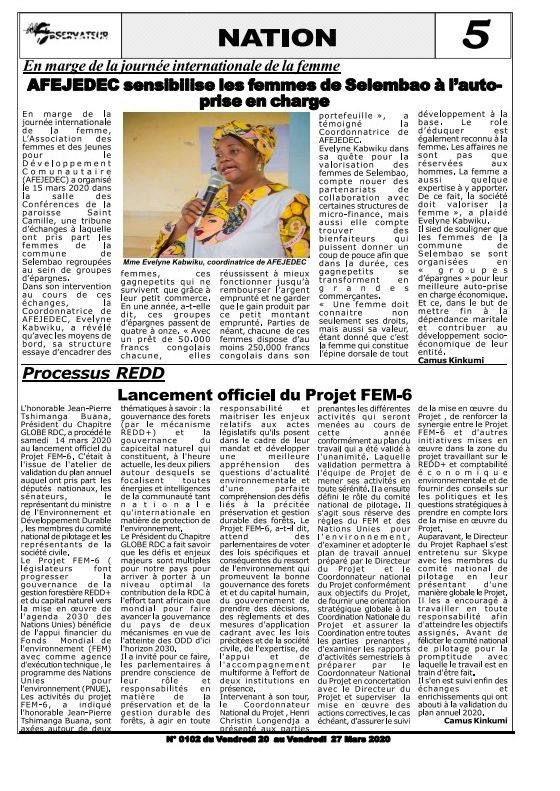
Journal Le Potentiel
